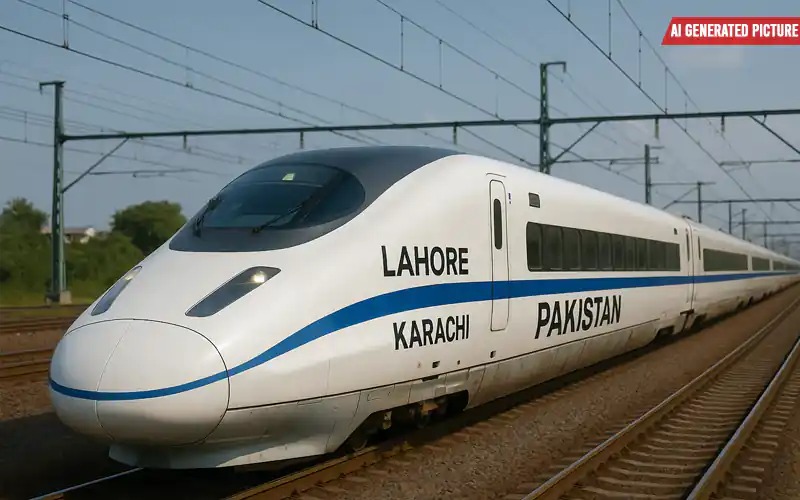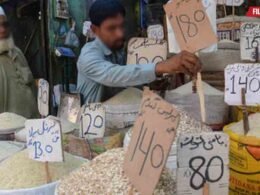In a move to cut Karachi to Lahore travel time from 20 hours to 5 hours, Pakistan Railways unveiled plans to launch the country’s first bullet train.
Officials confirmed that the initiative is part of the $6.8 billion Main Line-1 (ML-1) upgrade under China-Pakistan Economic Corridor (CPEC).
Federal Minister for Railways Hanif Abbasi announced the plan earlier this year, stating that the high-speed service will modernize Pakistan’s ageing railway network. The project will be executed with the support of Chinese companies, including China Railway Construction Corporation (CRCC).
Route and Major Stops of Pakistan’s first Bullet Train
The bullet train will cover a 1,215-kilometer route between Karachi and Lahore. Major stops will include Hyderabad, Multan, and Sahiwal.
Designed for speeds of up to 250 km/h, the service will cut journey time drastically compared to the 18–22 hours of current express trains.
What will be ticket prices of Bullet Train?
Ticket fares are expected to range from Rs 5,000 to Rs 10,000 for economy and business class, meanwhile, the current airfare averages between Rs 20,000 and Rs 30,000. The authorities believed that the pricing would make the service affordable to students, professionals, and families.
ML-1 upgrade for modern infrastructure
The ML-1 upgrade includes double tracks, rebuilt bridges, and advanced signaling systems. This will replace the outdated infrastructure, which currently limits train speeds to 60–105 km/h.
Read More: Karachi’s modern railway station to open on Sep 10
Timeline and Phases of Pakistan’s First Bullet Train
- Feasibility study: Completed June 2025
- Construction: Starts 2026, completion targeted for 2030
- Testing: Scheduled for 2029
- Launch: Expected in 2030 with 10–15 daily trips
Economic and job impact in Pakistan
Officials stated the project will create thousands of jobs during both construction and operation. It is expected to raise Pakistan’s freight rail share from 4 percent to 20 percent by 2030.
Additionally, the train will reduce reliance on road transport, cutting costly fuel imports.











